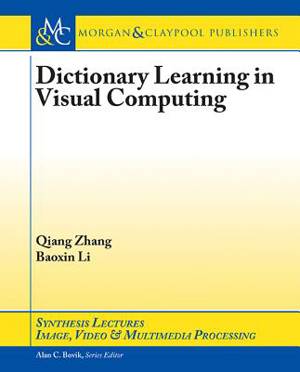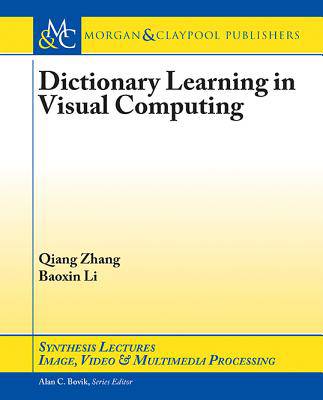
- Afhalen na 1 uur in een winkel met voorraad
- Gratis thuislevering in België vanaf € 30
- Ruim aanbod met 7 miljoen producten
- Afhalen na 1 uur in een winkel met voorraad
- Gratis thuislevering in België vanaf € 30
- Ruim aanbod met 7 miljoen producten
Zoeken
Omschrijving
The last few years have witnessed fast development on dictionary learning approaches for a set of visual computing tasks, largely due to their utilization in developing new techniques based on sparse representation. Compared with conventional techniques employing manually defined dictionaries, such as Fourier Transform and Wavelet Transform, dictionary learning aims at obtaining a dictionary adaptively from the data so as to support optimal sparse representation of the data. In contrast to conventional clustering algorithms like K-means, where a data point is associated with only one cluster center, in a dictionary-based representation, a data point can be associated with a small set of dictionary atoms. Thus, dictionary learning provides a more flexible representation of data and may have the potential to capture more relevant features from the original feature space of the data. One of the early algorithms for dictionary learning is K-SVD. In recent years, many variations/extensions of K-SVD and other new algorithms have been proposed, with some aiming at adding discriminative capability to the dictionary, and some attempting to model the relationship of multiple dictionaries. One prominent application of dictionary learning is in the general field of visual computing, where long-standing challenges have seen promising new solutions based on sparse representation with learned dictionaries. With a timely review of recent advances of dictionary learning in visual computing, covering the most recent literature with an emphasis on papers after 2008, this book provides a systematic presentation of the general methodologies, specific algorithms, and examples of applications for those who wish to have a quick start on this subject.
Specificaties
Betrokkenen
- Auteur(s):
- Uitgeverij:
Inhoud
- Aantal bladzijden:
- 151
- Taal:
- Engels
- Reeks:
Eigenschappen
- Productcode (EAN):
- 9781627057776
- Verschijningsdatum:
- 1/05/2015
- Uitvoering:
- Paperback
- Formaat:
- Trade paperback (VS)
- Afmetingen:
- 190 mm x 235 mm
- Gewicht:
- 272 g

Alleen bij Standaard Boekhandel
+ 163 punten op je klantenkaart van Standaard Boekhandel
Beoordelingen
We publiceren alleen reviews die voldoen aan de voorwaarden voor reviews. Bekijk onze voorwaarden voor reviews.








